
Thursday, November 15, 2007
Mrs. Warren's Profession
This blog begins this day. It's all new to me, but why not give it a go. Try it for a while. Since there is no Boswell, one must do it one's self, no?
I thought I’d write down my processes when beginning work on a show. Why not. Initiate a civilian into the working mind of an actor or give a newcomer some ideas and/or perhaps guidance. Then again it might bore them to death....
First of course there’s the excitement of when the job is offered. And then, if you’ve already purchased the script you begin reading it. Or they’ll send you one. Or if you’re really an idiot you wait until you get to the first rehearsal to read the play.
In this case, with Mrs. Warren’s Profession, there are several different versions. Apparently Mr. Shaw saw fit to change the script every so slightly from year to year so that royalties would necessarily continue to have to be paid to his estate.
The theatre first sent an 8X10 unbound script which was printed on both sides of the page. There were many many errors. I wondered who in the world typed the thing. Having gone to Katherine Gibbs Secretarial school in my youth, and having spent many years as an executive secretary, I’m very keen on lack of typos. This script was a mess. Some stage directions were written as if they were the characters’ lines, etc. Being such a one for perfection and being extremely detailed, I made note of the errors on the pages to tell them later.
I read the play through about three times. At first I had many questions about Mrs. Warren. Some of the play didn’t make sense to me at all. Was she still on active duty as a prostitute or merely as a Madam, for example. And who IS the father of Vivie?
I begin to underline certain descriptive passages. Things like what other characters say about her & how Shaw describes her. Gathering as many details as possible about the nature of her character, the setting, the clothing, time of day, weather, etc. Then I begin to jot notes on the page. Things like: “I don’t know who my daughter is, have spent no time at all with her.” “Would I ever have this discussion with him if he were her father? - probably not.” And I put a box around those words with which I’m unfamiliar. Like ‘broomsquires’ and ‘assizes,’ which I later look up. I’ve never understood how an actor can come to the first rehearsal and ask what a word means? Or how to pronounce it. Why haven’t they done their homework? Personally I’d be embarrassed to sit there during the first read-through and mispronounce words. It shows a laziness of mind, lack of intellectual enthusiasm and a palty spirit.
We (my husband who will be playing Crofts, and I) asked for the script well in advance of the beginning of rehearsal because there’s an enormous amount of words to learn. I’m a particularly fast study and usually know the entire script by heart by the time I walk in to the ‘meet and greet’ on that first day. I don’t like working with a script in hand. It’s cumbersome and interrupts the flow of emotions when one has to suddenly look down and grope for a line. Though I keep the script at the ready, of course, during the blocking process.
The theatre told us they would send a corrected version of the script, that they had gotten the original off the internet. Ah, that’s good, I thought. At least the typos weren’t their fault. That relieved me somewhat. About three weeks later it arrived. Many, though far from all, of the typos had been corrected. Ah well. Perfection is hard to come by.
So I began by memorizing the old script and now here’s the new one. And it’s printed only one one side of the page - which is how it should be with lots of nice space to write notes on the blank side. And once again I am amazed to realize how much the memorization process is photographic. You’re used to seeing a line a certain way in a certain place on a page. And suddenly it’s different - higher or lower, to the left or on the next page. And you’ve already set it in your mind’s eye. You actually “see” the line in your mind when you recite it in the beginning. So it makes it a wee bit more difficult to change scripts mid stream.
11/15/07
I’m up to around page 38 now. Soon I’ll be into the heavy monologues. Yesterday I learned all about ‘tripos’ and ‘wranglers.’ Some theatres have dramaturges, but I tend to do my own research. It's part of what I consider "homework." There’s a fabulous blog that Susan Booth did of her production at Alliance which I’ve saved and other wonderful bits and pieces from various reviews of various productions which give many flavors and ideas from which to choose. Seeing the myriad photographs of the actresses who have portrayed her is quite interesting. Some looked lean and gorgeous and upper class, others looked plump and gaudy. Isn’t the Internet a wonderful thing! One can just go anywhere and discover infinite realms of fascinating information.
I haven’t begun to determine who I want this woman to be. Sometimes I know instinctively who a character is inside and out (like Hedda, or Maureen in Beauty Queen). Sometimes I haven’t a clue (like Miss Julie). And sometimes, as in this case, I half know her. I know parts of her, but not all of her. I’m not sure whether to make her a lower class baud, or a nouveau riche type with airs. Shaw specifically states that at one point she drops into her lower class speech patterns, so obviously one must start with a more upper crust accent. The question becomes - how good is her attempt at upper class speech? Is she proficient at it? And if not, where are the nots. One doesn’t want the audience to think that the actress can’t do the accent correctly, which could easily happen if one bastardizes her main way of speaking by jotting in odd cockney words here and there. The other question is WHAT is her street accent? As the Laird (that’s my husband) pointed out (being a master of dialects), there are many to choose from. North Country being one. My inclination is to go with the standard cockney. The main reason being that, although it might be a rather uncreative choice, it will be less likely to confuse an audience. An audience will identify immediately if I drop into a Liza Doolittle accent, but might wonder what the heck’s going on if I suddenly sound like I’m from someplace near Scotland. But there’s a bit of laziness in me too. It’ll be hard enough to learn the cockney. North country would be even harder.
I thought I’d write down my processes when beginning work on a show. Why not. Initiate a civilian into the working mind of an actor or give a newcomer some ideas and/or perhaps guidance. Then again it might bore them to death....
First of course there’s the excitement of when the job is offered. And then, if you’ve already purchased the script you begin reading it. Or they’ll send you one. Or if you’re really an idiot you wait until you get to the first rehearsal to read the play.
In this case, with Mrs. Warren’s Profession, there are several different versions. Apparently Mr. Shaw saw fit to change the script every so slightly from year to year so that royalties would necessarily continue to have to be paid to his estate.
The theatre first sent an 8X10 unbound script which was printed on both sides of the page. There were many many errors. I wondered who in the world typed the thing. Having gone to Katherine Gibbs Secretarial school in my youth, and having spent many years as an executive secretary, I’m very keen on lack of typos. This script was a mess. Some stage directions were written as if they were the characters’ lines, etc. Being such a one for perfection and being extremely detailed, I made note of the errors on the pages to tell them later.
I read the play through about three times. At first I had many questions about Mrs. Warren. Some of the play didn’t make sense to me at all. Was she still on active duty as a prostitute or merely as a Madam, for example. And who IS the father of Vivie?
I begin to underline certain descriptive passages. Things like what other characters say about her & how Shaw describes her. Gathering as many details as possible about the nature of her character, the setting, the clothing, time of day, weather, etc. Then I begin to jot notes on the page. Things like: “I don’t know who my daughter is, have spent no time at all with her.” “Would I ever have this discussion with him if he were her father? - probably not.” And I put a box around those words with which I’m unfamiliar. Like ‘broomsquires’ and ‘assizes,’ which I later look up. I’ve never understood how an actor can come to the first rehearsal and ask what a word means? Or how to pronounce it. Why haven’t they done their homework? Personally I’d be embarrassed to sit there during the first read-through and mispronounce words. It shows a laziness of mind, lack of intellectual enthusiasm and a palty spirit.
We (my husband who will be playing Crofts, and I) asked for the script well in advance of the beginning of rehearsal because there’s an enormous amount of words to learn. I’m a particularly fast study and usually know the entire script by heart by the time I walk in to the ‘meet and greet’ on that first day. I don’t like working with a script in hand. It’s cumbersome and interrupts the flow of emotions when one has to suddenly look down and grope for a line. Though I keep the script at the ready, of course, during the blocking process.
The theatre told us they would send a corrected version of the script, that they had gotten the original off the internet. Ah, that’s good, I thought. At least the typos weren’t their fault. That relieved me somewhat. About three weeks later it arrived. Many, though far from all, of the typos had been corrected. Ah well. Perfection is hard to come by.
So I began by memorizing the old script and now here’s the new one. And it’s printed only one one side of the page - which is how it should be with lots of nice space to write notes on the blank side. And once again I am amazed to realize how much the memorization process is photographic. You’re used to seeing a line a certain way in a certain place on a page. And suddenly it’s different - higher or lower, to the left or on the next page. And you’ve already set it in your mind’s eye. You actually “see” the line in your mind when you recite it in the beginning. So it makes it a wee bit more difficult to change scripts mid stream.
11/15/07
I’m up to around page 38 now. Soon I’ll be into the heavy monologues. Yesterday I learned all about ‘tripos’ and ‘wranglers.’ Some theatres have dramaturges, but I tend to do my own research. It's part of what I consider "homework." There’s a fabulous blog that Susan Booth did of her production at Alliance which I’ve saved and other wonderful bits and pieces from various reviews of various productions which give many flavors and ideas from which to choose. Seeing the myriad photographs of the actresses who have portrayed her is quite interesting. Some looked lean and gorgeous and upper class, others looked plump and gaudy. Isn’t the Internet a wonderful thing! One can just go anywhere and discover infinite realms of fascinating information.
I haven’t begun to determine who I want this woman to be. Sometimes I know instinctively who a character is inside and out (like Hedda, or Maureen in Beauty Queen). Sometimes I haven’t a clue (like Miss Julie). And sometimes, as in this case, I half know her. I know parts of her, but not all of her. I’m not sure whether to make her a lower class baud, or a nouveau riche type with airs. Shaw specifically states that at one point she drops into her lower class speech patterns, so obviously one must start with a more upper crust accent. The question becomes - how good is her attempt at upper class speech? Is she proficient at it? And if not, where are the nots. One doesn’t want the audience to think that the actress can’t do the accent correctly, which could easily happen if one bastardizes her main way of speaking by jotting in odd cockney words here and there. The other question is WHAT is her street accent? As the Laird (that’s my husband) pointed out (being a master of dialects), there are many to choose from. North Country being one. My inclination is to go with the standard cockney. The main reason being that, although it might be a rather uncreative choice, it will be less likely to confuse an audience. An audience will identify immediately if I drop into a Liza Doolittle accent, but might wonder what the heck’s going on if I suddenly sound like I’m from someplace near Scotland. But there’s a bit of laziness in me too. It’ll be hard enough to learn the cockney. North country would be even harder.
Subscribe to:
Post Comments (Atom)

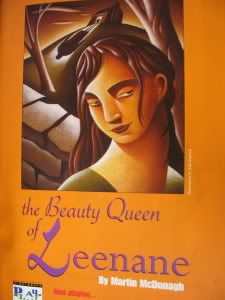
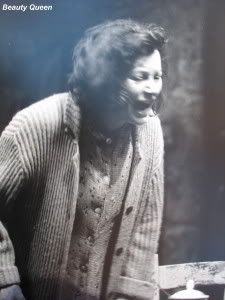
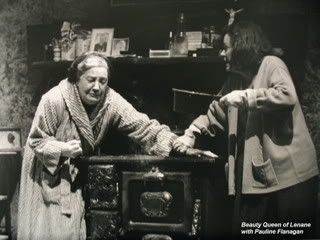
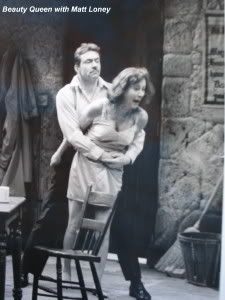
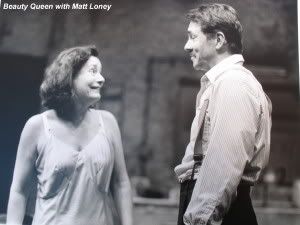
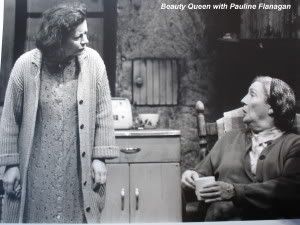
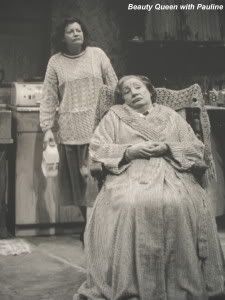
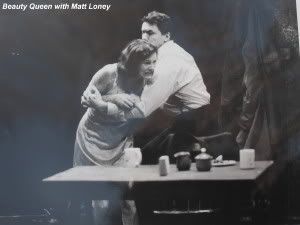
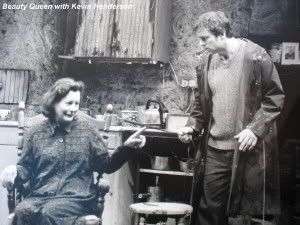
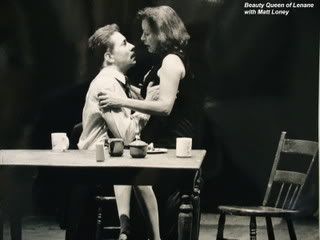

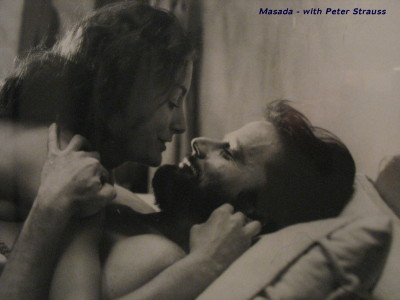
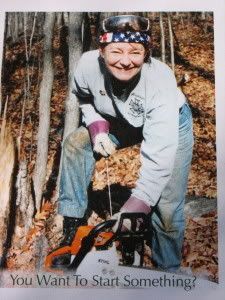
No comments:
Post a Comment